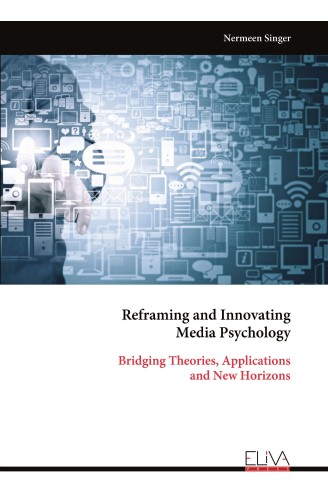Description
The field of media psychology has evolved significantly, paralleling advancements in media technology from print and broadcast to today's digital ecosystems. This evolution necessitates updated theoretical frameworks and practical approaches to understand the psychological impacts of media. Reframing and Innovating Media Psychology: Bridging Theories, Applications, and New Horizons addresses this need, bridging foundational theories with innovative perspectives to tackle emerging challenges in the media landscape. The book begins by revisiting traditional theories in media psychology, highlighting their relevance while identifying their limitations in addressing the complexities of modern digital platforms. It proposes a reframed, comprehensive model for understanding media's influence on cognition, emotion, and behavior. Beyond theory, the book explores practical applications, including real-world case studies, education, public health, and ethical considerations. It emphasizes the importance of interdisciplinary collaboration to enrich understanding and expand the boundaries of media psychology. As media becomes increasingly immersive and pervasive, ethical challenges such as algorithmic bias, misinformation, and the psychological impacts of AI and virtual reality are addressed. The book equips readers with tools to responsibly navigate and influence the media landscape. This work draws on contributions from scholars and practitioners to serve as a resource and inspiration for students, researchers, educators, and practitioners. It calls on readers to critically engage with the ideas presented, aiming to reframe and innovate media psychology to meet the demands of an ever-changing world while enhancing the human experience.




